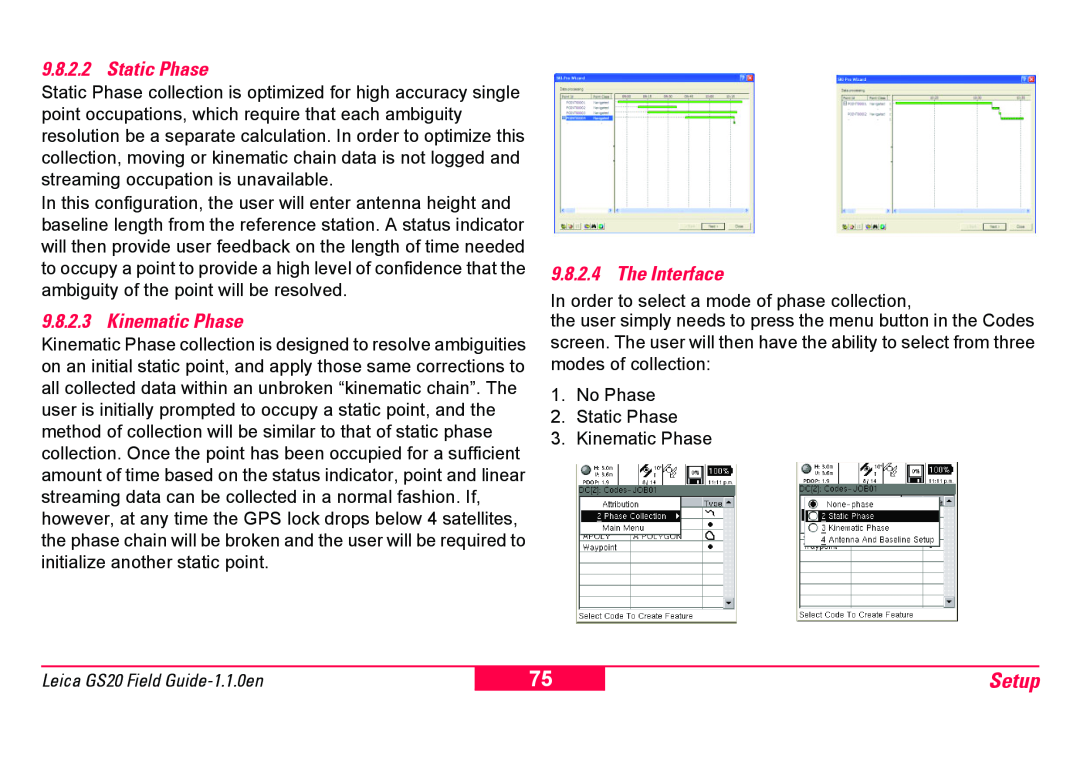
9.8.2.2 Static Phase
Static Phase collection is optimized for high accuracy single point occupations, which require that each ambiguity resolution be a separate calculation. In order to optimize this collection, moving or kinematic chain data is not logged and streaming occupation is unavailable.
In this configuration, the user will enter antenna height and baseline length from the reference station. A status indicator will then provide user feedback on the length of time needed to occupy a point to provide a high level of confidence that the ambiguity of the point will be resolved.
9.8.2.3 Kinematic Phase
Kinematic Phase collection is designed to resolve ambiguities on an initial static point, and apply those same corrections to all collected data within an unbroken “kinematic chain”. The user is initially prompted to occupy a static point, and the method of collection will be similar to that of static phase collection. Once the point has been occupied for a sufficient amount of time based on the status indicator, point and linear streaming data can be collected in a normal fashion. If, however, at any time the GPS lock drops below 4 satellites, the phase chain will be broken and the user will be required to initialize another static point.
9.8.2.4 The Interface
In order to select a mode of phase collection,
the user simply needs to press the menu button in the Codes screen. The user will then have the ability to select from three modes of collection:
1.No Phase
2.Static Phase
3.Kinematic Phase
Leica GS20 Field
75
Setup
